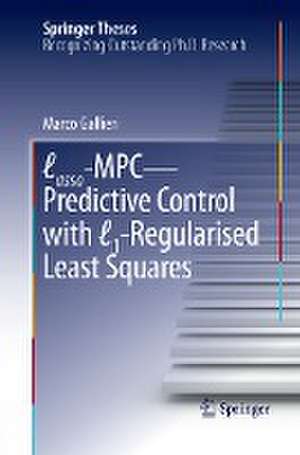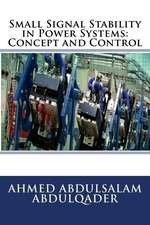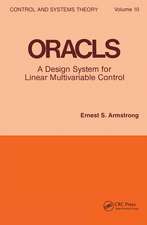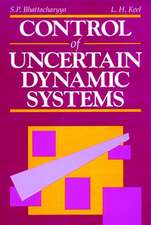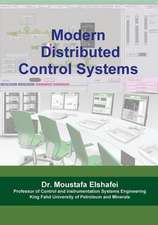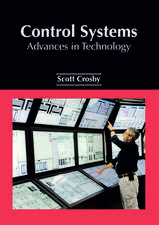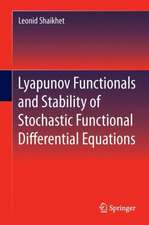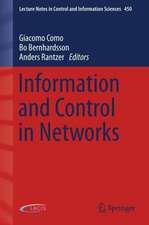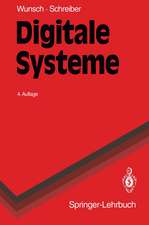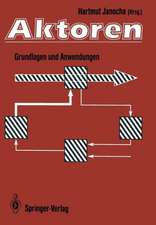Lasso-MPC – Predictive Control with ℓ1-Regularised Least Squares: Springer Theses
Autor Marco Gallierien Limba Engleză Paperback – 25 apr 2018
| Toate formatele și edițiile | Preț | Express |
|---|---|---|
| Paperback (1) | 636.63 lei 6-8 săpt. | |
| Springer International Publishing – 25 apr 2018 | 636.63 lei 6-8 săpt. | |
| Hardback (1) | 642.83 lei 6-8 săpt. | |
| Springer International Publishing – 11 apr 2016 | 642.83 lei 6-8 săpt. |
Din seria Springer Theses
- 18%
 Preț: 997.88 lei
Preț: 997.88 lei -
 Preț: 389.88 lei
Preț: 389.88 lei - 15%
 Preț: 646.94 lei
Preț: 646.94 lei - 18%
 Preț: 943.43 lei
Preț: 943.43 lei -
 Preț: 399.29 lei
Preț: 399.29 lei - 18%
 Preț: 944.99 lei
Preț: 944.99 lei - 15%
 Preț: 636.80 lei
Preț: 636.80 lei - 18%
 Preț: 941.05 lei
Preț: 941.05 lei - 15%
 Preț: 643.16 lei
Preț: 643.16 lei - 15%
 Preț: 642.68 lei
Preț: 642.68 lei - 18%
 Preț: 1103.62 lei
Preț: 1103.62 lei - 20%
 Preț: 558.83 lei
Preț: 558.83 lei - 18%
 Preț: 1112.30 lei
Preț: 1112.30 lei - 18%
 Preț: 944.19 lei
Preț: 944.19 lei - 18%
 Preț: 1109.92 lei
Preț: 1109.92 lei - 18%
 Preț: 1217.27 lei
Preț: 1217.27 lei - 15%
 Preț: 640.06 lei
Preț: 640.06 lei - 15%
 Preț: 636.45 lei
Preț: 636.45 lei - 15%
 Preț: 640.06 lei
Preț: 640.06 lei - 15%
 Preț: 640.88 lei
Preț: 640.88 lei -
 Preț: 389.70 lei
Preț: 389.70 lei - 20%
 Preț: 563.91 lei
Preț: 563.91 lei -
 Preț: 393.35 lei
Preț: 393.35 lei - 15%
 Preț: 637.93 lei
Preț: 637.93 lei - 15%
 Preț: 641.85 lei
Preț: 641.85 lei - 18%
 Preț: 1225.94 lei
Preț: 1225.94 lei - 20%
 Preț: 551.36 lei
Preț: 551.36 lei - 18%
 Preț: 1229.10 lei
Preț: 1229.10 lei - 15%
 Preț: 639.25 lei
Preț: 639.25 lei - 18%
 Preț: 999.45 lei
Preț: 999.45 lei - 15%
 Preț: 640.06 lei
Preț: 640.06 lei - 18%
 Preț: 1220.45 lei
Preț: 1220.45 lei - 18%
 Preț: 1116.26 lei
Preț: 1116.26 lei - 18%
 Preț: 1110.72 lei
Preț: 1110.72 lei - 18%
 Preț: 1000.87 lei
Preț: 1000.87 lei - 18%
 Preț: 891.17 lei
Preț: 891.17 lei - 15%
 Preț: 640.06 lei
Preț: 640.06 lei - 5%
 Preț: 1154.07 lei
Preț: 1154.07 lei - 15%
 Preț: 635.96 lei
Preț: 635.96 lei - 15%
 Preț: 640.88 lei
Preț: 640.88 lei -
 Preț: 387.20 lei
Preț: 387.20 lei - 18%
 Preț: 1109.92 lei
Preț: 1109.92 lei -
 Preț: 385.25 lei
Preț: 385.25 lei -
 Preț: 385.25 lei
Preț: 385.25 lei - 18%
 Preț: 1112.30 lei
Preț: 1112.30 lei - 18%
 Preț: 999.45 lei
Preț: 999.45 lei -
 Preț: 386.99 lei
Preț: 386.99 lei - 15%
 Preț: 637.13 lei
Preț: 637.13 lei - 20%
 Preț: 554.21 lei
Preț: 554.21 lei - 20%
 Preț: 555.59 lei
Preț: 555.59 lei
Preț: 636.63 lei
Preț vechi: 748.97 lei
-15% Nou
Puncte Express: 955
Preț estimativ în valută:
121.84€ • 126.73$ • 100.58£
121.84€ • 126.73$ • 100.58£
Carte tipărită la comandă
Livrare economică 15-29 aprilie
Preluare comenzi: 021 569.72.76
Specificații
ISBN-13: 9783319802473
ISBN-10: 331980247X
Ilustrații: XXX, 187 p. 64 illus., 54 illus. in color.
Dimensiuni: 155 x 235 mm
Greutate: 0.31 kg
Ediția:Softcover reprint of the original 1st ed. 2016
Editura: Springer International Publishing
Colecția Springer
Seria Springer Theses
Locul publicării:Cham, Switzerland
ISBN-10: 331980247X
Ilustrații: XXX, 187 p. 64 illus., 54 illus. in color.
Dimensiuni: 155 x 235 mm
Greutate: 0.31 kg
Ediția:Softcover reprint of the original 1st ed. 2016
Editura: Springer International Publishing
Colecția Springer
Seria Springer Theses
Locul publicării:Cham, Switzerland
Cuprins
Introduction.- Background.- Principles of LASSO MPC.- Version 1: `1-Input Regularised Quadratic MPC.- Version 2: LASSO MPC with stabilising terminal cost.- Design of LASSO MPC for prioritised and auxiliary actuators.- Robust Tracking with Soft-constraints.- Ship roll reduction with rudder and fins.- Concluding Remarks.
Notă biografică
Marco Gallieri received a PhD inEngineering as an EPSRC scholar from Sidney Sussex College, the University ofCambridge, in 2014. His research was on Model Predictive Control forredundantly actuated systems, with focus on marine and air vehicles. In 2007 he received a BSc and in 2009 an MScin information and industrial automation engineering from the Universita’Politecnica delle Marche, in Italy. He wrote his MSc thesis in 2009 during anErasmus exchange at the National University of Ireland Maynooth incollaboration with BioAtlantis Ltd and Enterprise Ireland. The topic wasmodeling and control design for a crane-vessel for seaweed harvesting. Between May and September 2010 he was a MarieCurie early state researcher at the Instituto Superior Tecnico in Lisbon,working on non-linear methods for formation control of autonomous underwatervehicles with range only measurements. He is author of ten internationalconference papers as well as a Journal article.
Since February 2014 he is with McLaren Racing Ltd. From July2015 he is involved in the development of the F1 car simulator.Previously he worked as a control systems engineer and developed a model basedLi-Ion battery management system for the 2015 Honda power unit. Furtherrelevant projects included car speed and attitude estimation via sensor fusion,predictive analytics for fuel sensor management and fuel system designoptimization.
Since February 2014 he is with McLaren Racing Ltd. From July2015 he is involved in the development of the F1 car simulator.Previously he worked as a control systems engineer and developed a model basedLi-Ion battery management system for the 2015 Honda power unit. Furtherrelevant projects included car speed and attitude estimation via sensor fusion,predictive analytics for fuel sensor management and fuel system designoptimization.
Textul de pe ultima copertă
This thesis proposes a novel Model Predictive Control (MPC) strategy, which modifies the usual MPC cost function in order to achieve a desirable sparse actuation. It features an ℓ1-regularised least squares loss function, in which the control error variance competes with the sum of input channels magnitude (or slew rate) over the whole horizon length. While standard control techniques lead to continuous movements of all actuators, this approach enables a selected subset of actuators to be used, the others being brought into play in exceptional circumstances. The same approach can also be used to obtain asynchronous actuator interventions, so that control actions are only taken in response to large disturbances. This thesis presents a straightforward and systematic approach to achieving these practical properties, which are ignored by mainstream control theory.
Caracteristici
Proposes a novel Model Predictive Control (MPC) strategy Presents a straightforward and systematic approach to obtaining asynchronous actuator interventions Outperforms more common MPC strategies when tested on vessel roll reduction Includes supplementary material: sn.pub/extras
